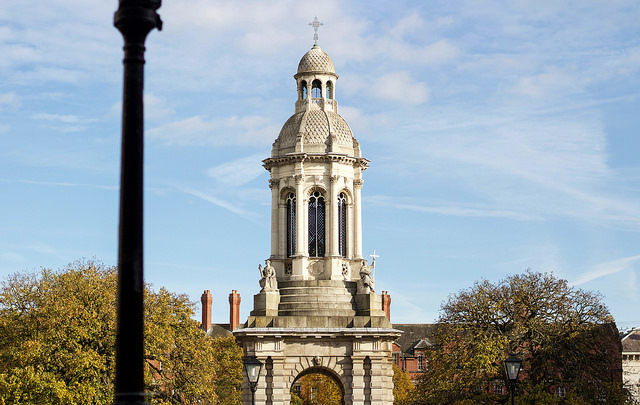As the Trinity Education Project enters its penultimate phase, University Council has approved the creation of six new Trinity Education Project Teaching Fellows to oversee the ongoing redevelopment of the university’s undergraduate education
The new Fellows, approved at a meeting of University Council on October 26th, will help support the various aspects of the project, including the expansion of Trinity’s curriculum and the development of new electives modules.
A presentation to University Council, seen by The University Times, stated that these Fellows would also help deliver “breadth” to the curriculum and support committees to review Trinity’s curriculum as it develops.
The Fellows will also aid the growth of a “programme-based approach to introducing assessment”. This will see College, with the new Fellows, support the development of new assessment framework at each individual school level.
Speaking to The University Times, Education Officer of Trinity College Dublin Students’ Union (TCDSU), Dale Whelehan, explained that they will have their academic workloads lightened, as “they’re going to be given time and space to sort of go around College and try open up the dialogue about the project”.
The six Trinity Education Project Teaching Fellows come from across a range of schools and faculties in Trinity. Head of the Department of Sociology, Dr Daniel Faas, who was elected to Fellowship in 2015, will be the teaching fellow for computer science. Faas is also a member of University Council.
Dr Cicely Roche, associate professor of pharmacy, was appointed as the fellow for BESS. Roche’s academic interests include the areas of ethics and professional reasoning. Assistant professor of drama, Dr Nicholas Johnson, has also been made a fellow, with responsibility for the School of Law. Johnson, who is also a writer, actor and director, received the Provost’s Teaching Award in 2013.
The Fellows have been appointed to subject areas different to their own to help facilitate the rollout of the project across a wide range of programmes and courses. Courses, like BESS and computer science, have received the Fellows first due to their larger size.
Associate professor in zoology, Dr Nicola Marples, has been made a fellow for languages, drama, film and music. Marples was elected to Fellowship in 2006.
Trinity’s STEM courses will receive their own fellow, Dr Nóirín Nic A Bháird, a research fellow with the School of Biochemistry and Immunology. Similarly, the School of English, the schools for histories, as well as the humanities, will see Dr Michelle Share appointed as their fellow. Share, from the School of Education, works in the Children’s Research Centre.
The Trinity Education Project is now in its planning for implementation stage before the final stage begins in June 2018, when all the new reforms introduced under the project will come into effect for the first time. As part of the phase, the Trinity Education Project will be broken up into five strands, focusing on a number of areas including co-curricular and extracurricular activities, internships and new elective modules.
A new academic year structure, which will see both the introduction of a Christmas exam week and a two-week earlier start to the year and will take effect in the 2018-19 academic year, was approved by University Council on June 29th. These statutory changes will need the assent of the university’s Fellows, however, before they can take affect. The introduction of the new, stand-alone modules, or electives, as part of the education project, was approved by University Council in a meeting on June 8th.
The Trinity Education Project aims to review and change the education offered to undergraduate students in Trinity, including how they are taught and assessed. The project initially began as a review of the undergraduate curriculum during the 2012-13 academic year.
Correction: November 11th, 2016
An earlier version of this article incorrectly referred to the current phase of the Trinity Education Project as the implementation phase. In fact, the current phase is the planning for implementation phase. An earlier article also stated that this phase included seven strands. In fact, in includes five.







